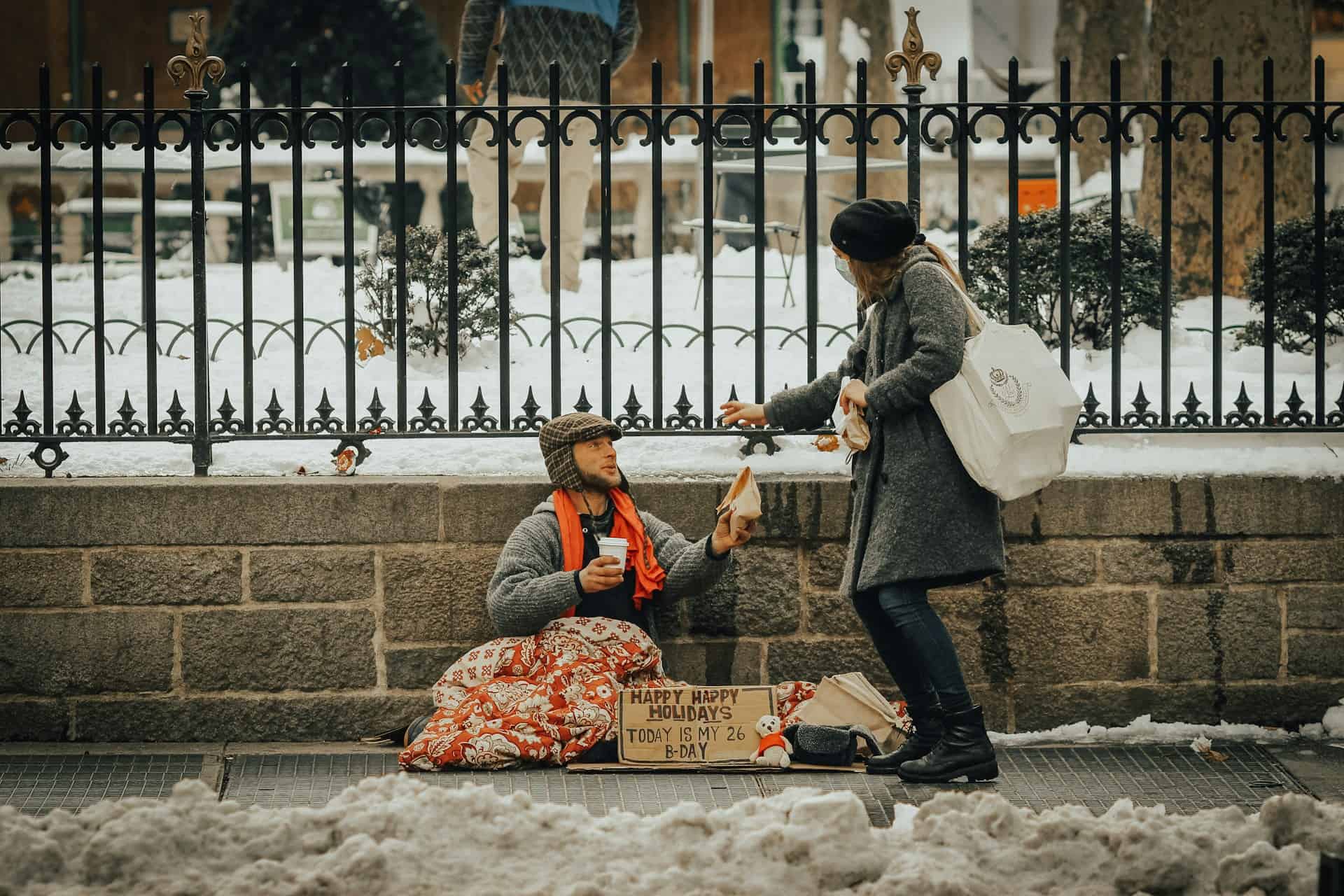OnTheWight always welcomes a Letter to the Editor to share with our readers – unsurprisingly they don’t always reflect the views of this publication. If you have something you’d like to share, get in touch and of course, your considered comments are welcome below.
This from Maggie Nelmes, Ventnor. Ed
A cry for help from a member of Nextdoor’s East Wight neighbourhood on social media — a man living in a homeless hostel with his heavily pregnant partner — has so shocked me that I feel compelled to raise awareness of the issue.
He writes about the chaotic lifestyle of some of the residents there:
“I spent Christmas Day cleaning faeces off the shared bathroom walls, blood and phlegm off the sink. This isn’t the first time in my two months of being here. I have contacted the council and the staff here over and over and they do nothing.
“We were told it was a family hostel for temporary housing. It’s more like a drug den for the homeless. Some of the residents stay up all night shouting.
“We are at our wit’s end, my partner has gone down with e.coli twice because she is afraid to use the toilet. The council says this is adequate. My unborn baby has been put at risk and we have given medical evidence. But it’s still adequate.
“I just don’t know what to do next. Anyone have any ideas(?) I have now sent a email to the MP Joe Robertson.”
Deteriorating health
The stench of drugs in the hallways prevents them from opening their windows, children are running wild in the building, kicking balls against their door, and noise at night often leaves them sleep-deprived, exhausted. Within two months, she will give birth and must take the newborn home to this.
No wonder her mental health is deteriorating. And the couple are separated from their two other children because they couldn’t bear them having to live there.
Support from Islanders
To their credit, many Nextdoor members have responded to the man’s request for advice. Someone knew of a vacant property and asked if he and his partner could afford £950 a month to rent it on the open market. This is his reply:
“We only get £550 housing benefit and when the baby is born it goes up to £650. This is why it is so difficult to rent private. I wish we could, I need to get back to work but it’s impossible for me at the moment. My partner is really stressed out and I can’t just leave her here on her own in this place.”
Several commenters write that they, or a close relative, have had similar experiences living in that hostel with a baby and/or young children. One wrote that all you can do is ‘sit it out’ until you can find somewhere better.
Life on the streets
I met a homeless woman at a church hall, enjoying a nutritious hot meal, provided free of charge every day between Boxing Day and 3rd January. She told me how hard it was to survive, living on the streets – to find somewhere safe to sleep and keep herself clean – and how she feared being attacked and robbed. She must suffer the freezing temperatures, gales and heavy rain typical of an English winter.
She talked about her ideas for getting out of this terrible situation, about what kind of alternative accommodation she could afford – a boat or shipping container – and how to find a job with board and lodging provided.
Planning reform changes not the solution
The Government is well aware of the housing crisis, and intent on trying to solve it, but taking away the powers of local authorities to make their own planning decisions, based on local knowledge, to impose unrealistic housing development targets, is NOT the solution.
Coastal and rural areas like the Isle of Wight are very attractive to newly retired people from the home counties, to second-home owners, to those profiting from holiday and private rentals. Swallowing up our precious countryside for executive housing estates may bring down house prices, but it is likely to encourage more Airbnb, retirement and second homes.
Government definition of ‘affordable’ not realistic
Granted, local authorities can and do negotiate with developers for a certain proportion of the houses built to be for sale or rent at ‘affordable’ prices, but the Government’s notion of affordability is NOT the reality in low-wage areas like the Isle of Wight.
Average wages in each area should be used to set the local level of affordability.
Protecting wildlife habitats
Allowing development to swallow up our countryside is deeply concerning to wildlife groups like the Wildlife Trusts and National Trust, which are working hard on the Island to restore habitats for all species whose populations have plummeted in the last fifty years.
It is deeply concerning, too, to those working hard to restore the mental health of more and more people who are suffering from the stresses of life in our chaotic country and world. We are finally realizing that we, as a species, are part of nature and that nature therapy is a basic human need.
Getting on the housing ladder
The inability of so many young people to buy or rent a home is causing greater inequality of opportunity in our society. Inequality breeds resentment and division. Some young people can rely on “the bank of mum and dad” to lift them onto the property ladder or help pay extortionate private rents, but others can’t.
There is also the great generation divide. Young people can resent the comfortable lifestyles of older generations, who do not appear to have struggled nearly so much in their youth in order to get a place of their own.
Regulate the market
Instead of imposing unrealistic housing development targets on local authorities, perhaps the Government should regulate the market to reduce exorbitant rents.
According to a recent article published in The Guardian, nationwide, two-thirds of people cannot afford the rent they are charged and constantly fear eviction and homelessness.
A basic human need
Having a home is a basic human need, for shelter and security. Everyone should be able to afford or be provided with one. They should not have to live in a community dominated by drug addicts. They should not have to live rough, struggling to survive our cold and increasingly stormy winters.
Survival saps all of a person’s energy, prevents them from getting a job and contributing to society, undermines their physical and mental health, and wrecks their personal relationships and social lives. They are forced to live in limbo, unable to plan for the future. No wonder many turn to drug and alcohol addiction, drugs seemingly so easy to obtain, I smell their stench everywhere on the streets these days.
Ever-widening gap between rich and poor
The UK is one of the richest countries in the world. Yet, the cost of living is now so high, and wages have been stagnant for so long, that more and more working people are unable to afford to put a roof over their heads. The ever-widening gap between rich and poor in our society, since the launch of Thatcher’s economic policies of greed and privatization in the1980s, and successive Conservative governments’ gross mismanagement of our economy over the past fourteen years, have a lot to answer for.
Homeless people desperately need solutions. Central government was responsible for starving local authorities of funding for the past fourteen years, so they should prioritise funding for housing homeless people.





